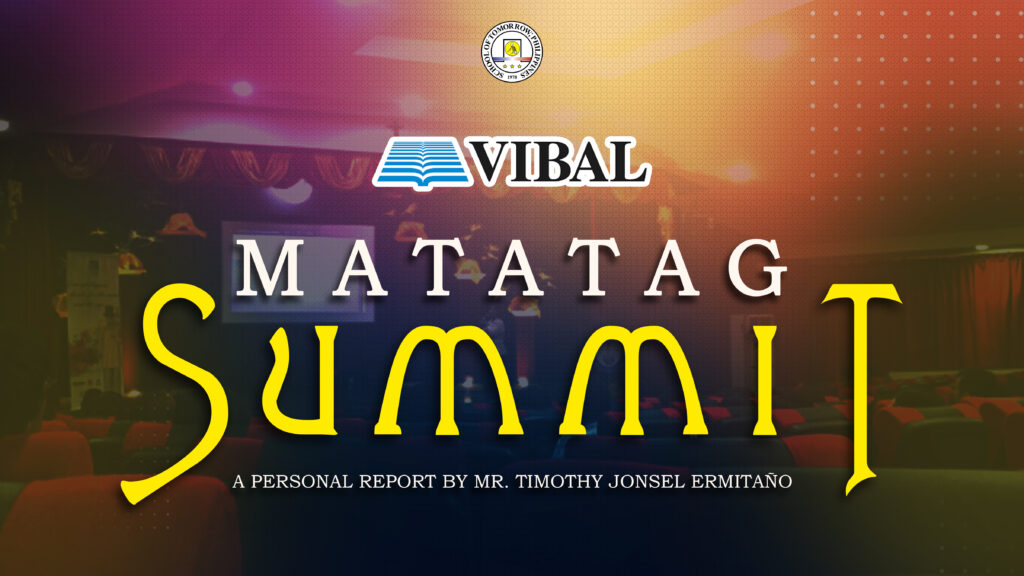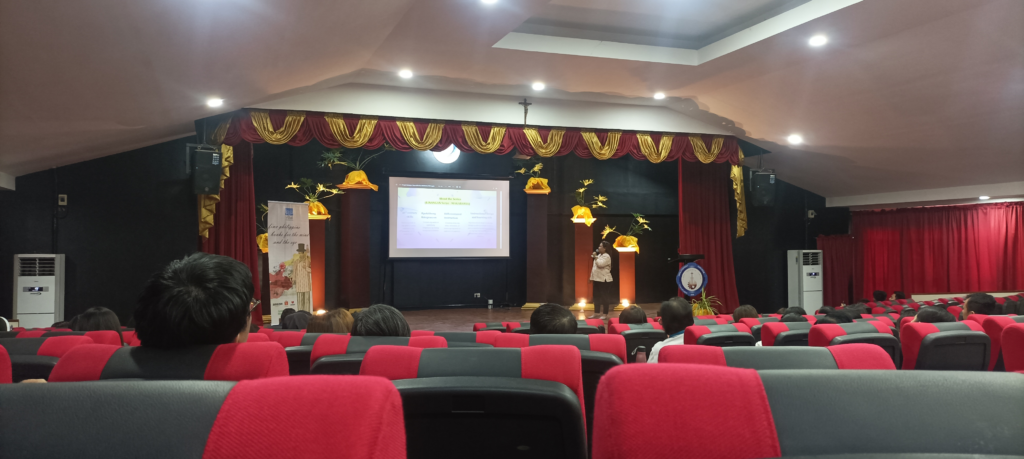- by Timothy Jonsel Ermitano
- in Mar Apr PIONEER 2024
- on April 5, 2024

The MATATAG initiative is the government’s response to the changing landscape of education worldwide. The summit, organized by Vibal Publishing, which I had the privilege of attending, was focused in bringing the basic educational institution, both in the private and public sectors, into a level that is ready to implement the MATATAG curriculum. The city of Parañaque is the first of many venues.
The summit started off with data regarding the real condition of basic education in the country, but mostly focused in the city of Parañaque. The National Achievement Test (NAT) and the Programme for International Student Assessment (PISA) were the main bases of the first talk given by Dr. Rodel C. Apostol from the Department of Education (DEPED) Division of Parañaque.

As discussed in our trainings and emphasized in our last Educators’ Convention (EDCON), the learning gap that was projected due to the pandemic has escalated into learning poverty. Since the talk was directed to private schools, the real priority was: 1) Increased Literacy Rate, 2) Higher NAT results, and 3) better PISA test results.
The speaker talked about a number of root causes that contributed to the learning poverty our country is experiencing; from hunger to cramped classrooms, and even the lack of skilled teachers. Admittedly, these problems were in existence for decades and would worsen as time progresses. But, one of the things that stood out was the need for a focused curriculum that would address lacking key competencies as seen in different assessments. One of the assessment tests that DEPED uses is the Test of Fundamental Academic Skills (TOFAS) that is used as a tool to achieve an understanding regarding the individual potential of each student, while reducing the workload of teachers. One of the assessment results indicated that a number of learners do not have specific skills in multiplication and division of fractions because there was no MASTERY.
Yes, you heard that right. Mastery. This is one of the strengths of the ACE curriculum that would answer the core needs of conventional education, and I believe that this is a testament to the effectiveness of our system. It was also stated that one of the contributing factors in the widening of the learning gap during the pandemic was the inability to provide tested curriculum modules to their clientele. This is another strength of our curriculum – the prepared materials we have. It was a big challenge during the pandemic, but the availability of curriculum materials was the least of our worries. Our main concern was ensuring that our curriculum was implemented properly.
A process of efficient supervision should be implemented to assure quality. This is what we are doing with our School Assistance Visit. Right now, in Parañaque, there are 45 public schools being overseen by a 20-man team, and they are still looking to add to their team. If you compare that to our four hundred (400) schools in the Philippines and Cambodia with only twenty-two (22) Field Consultants and Representatives, you would say that it’s an impossible task! But why is it doable? Because School of Tomorrow® is a SYSTEM OF EDUCATION that has already been established and properly documented. We are looking at ninety (90) items that a school should have to be considered as a standard school. These 90 things are found in the Procedures and Administration Manuals. A standard SOT®P school is properly equipped and capable to implement the A.C.E. School of Tomorrow® system efficiently and contribute to the objectives of the MATATAG initiative.
Further down the talk, Dr. Apostol appealed to the private schools of Parañaque to help in transforming the educational landscape of the Philippines for the better.
Fellow educators, our calling in Christian Education is more than just helping improve the educational status of our country. It is to reconnect our learners to the saving knowledge of our Lord Jesus Christ and transform families, and eventually, our communities through them. We owe it to the next generation to have access to Biblical education.
MATATAG – Makabansang Bata, Makabatang Bansa. A battle cry for a nationalistic generation who in turn will give equal opportunities to the next generation. For Christian education, we envision a generation of Godly leaders who will still provide those equal opportunities to the next generation, but with a deeper purpose of reaching the Philippines for Christ, one child at a time. Maka-Diyos na bata, Maka-Diyos na Bansa.